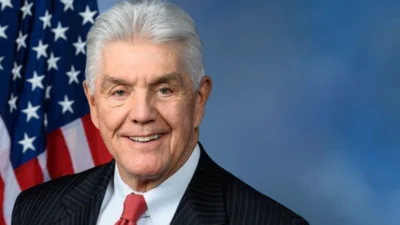May 20, 2025
In Washington, Subcommittee on Economic Growth, Energy Policy, and Regulatory Affairs Chairman Eric Burlison opened a hearing to scrutinize the Inflation Reduction Act (IRA) and its impact on energy and medicine. Burlison emphasized that the IRA has led to increased energy subsidies costing taxpayers billions while supporting what he termed the Democrats' radical energy agenda.
During his remarks, Burlison highlighted concerns about the IRA's financial implications. "Signed into law under the Biden Administration in 2022, this misleadingly-named legislation passed with zero Republican votes," he stated. He pointed out that three years after its enactment, costs have significantly exceeded initial estimates.
Burlison cited a January report from the Congressional Budget Office (CBO), which projected an $825 billion increase in U.S. budget deficits over ten years due to the IRA's energy subsidies. This figure contrasts sharply with earlier estimates of approximately $270 billion by CBO and the Joint Committee on Taxation.
He further referenced a Cato Institute analysis predicting that these subsidies could cost between $936 billion and $1.97 trillion over the next decade and up to $4.67 trillion by 2050. "These are chilling estimates that extend far beyond what was previously projected," Burlison remarked.
Burlison criticized the IRA for creating market distortions by subsidizing clean energy organizations unable to compete independently. He argued that this approach stifles free market competition: "The federal government slammed a fist on the economic scale."
Moreover, he claimed that tax loopholes within the IRA disproportionately benefit wealthier Americans while offering minimal savings for lower-income taxpayers: "The kicker? These IRA subsides... created tax loopholes... while failing to demonstrate tax savings of more than $100 for the bottom quintile of American taxpayers."
Regarding healthcare, Burlison expressed concerns about rising drug costs due to what he called a "pill penalty" under the IRA. He suggested revisiting these provisions could save taxpayers over $1 trillion and stimulate economic growth through enhanced market competition.
"This Republican majority is committed to protecting taxpayer dollars," he concluded, emphasizing their goal of reforming healthcare and opposing policies perceived as part of a wasteful "Green New Deal."







